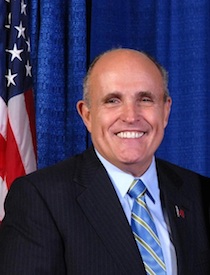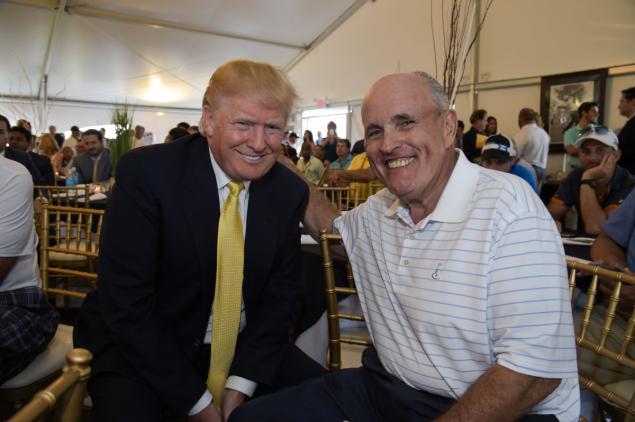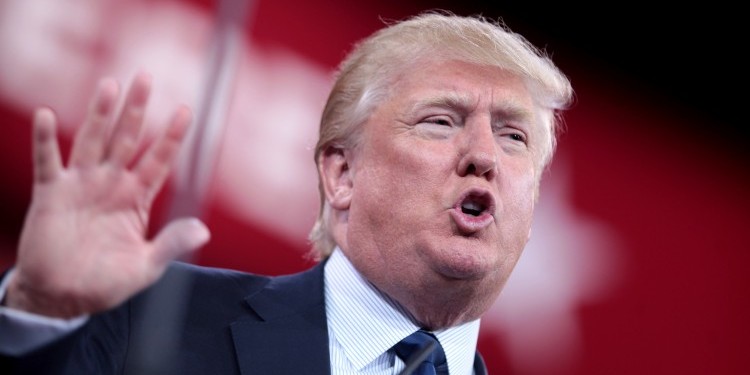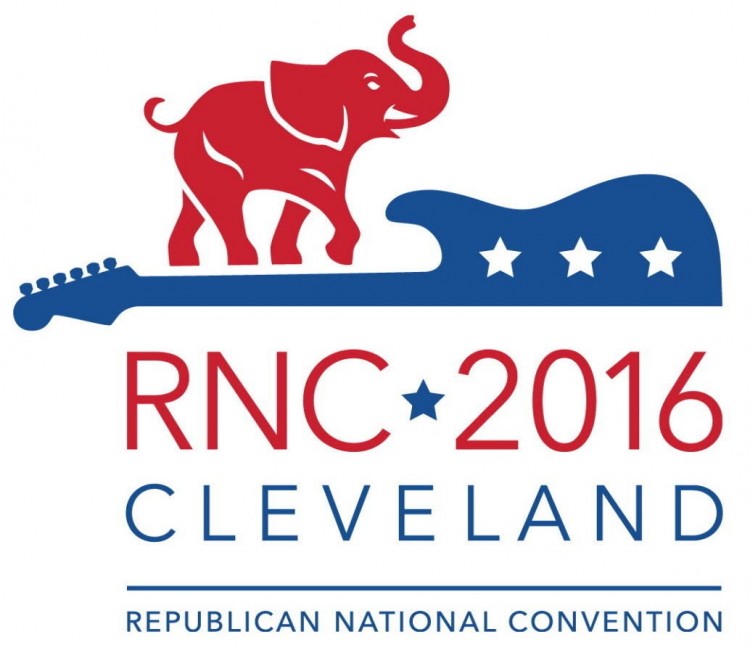Leadership
Sir Rudy Giuliani has become such a commanding figure that the reviewers of his book “Leadership” have spent far more space on his persona than his policies. The reviews almost invariably buy into the line about 9/11 bringing forth “a new Rudy.” The “new Rudy” idea was originally a creation of his critics, who were having a hard time reconciling their distaste for both the style and substance of his mayoralty with Giuliani’s heroic leadership in the face of an enemy attack.
The “new Rudy” talk takes two, somewhat unrelated, forms. One, drawing on his marital and medical troubles, insists, with some small justice, that he had become kinder and gentler. The other claims that 9/11 rescued his mayoralty from obscurity. In the words of BusinessWeek, “If not for his actions in the days after the attacks, the former New York mayor might have been remembered as much for his extramarital behavior and battle with cancer as for his performance in office.” Here, as the latest murder statistics testify, there’s barely a grain of truth. While murder is on the rise again around big-city America, it continues to decline in New York.
The Giuliani mayoralty was defined by continuity of vision and managerial style. It was framed by the two attacks on the World Trade Center. “Leadership” doesn’t mention it, but in Giuliani’s first inaugural speech given in January 1994, pride of place went to the February 1993 attack on the World Trade Center. The newly installed mayor praised the police, fire, and nursing rescuers, and described the city’s response to the terror attack as a model for the city’s self-reliant future. It was a moment, he said, when “50,000 New Yorkers took charge of themselves and each other, showing on their own even before any city worker could help them . . . the New York spirit that brought us through the World Trade Center crisis.” The response was “a demonstration of the courage and ingenuity we must apply to: restoring public safety, saving our schools, creating jobs, controlling our budget deficit and improving the quality of our lives.” Only after these comments did he turn to another emergency, crime.
If the city’s response to crises was on his mind from the very start, so were his methods in tackling emergencies. The reviews have largely overlooked what is both the most obvious and most striking thing about “Leadership.” How is it that a mayor–cities have long been synonymous with mismanagement–was presuming to give management advice to America’s world-leading business magnates?
The easy answer, noted by Newsweek, is that “Leadership” was written as “a calling card” for his consulting business “Giuliani Partners.” True enough, but it misses the open secret of his book. Giuliani has been a keen student of management. The ex-mayor is not an intellectual, but he is, like former President Clinton, a formidable intellect, a natural student of whatever subject he tackles who is capable of quickly absorbing and organizing a vast array of material.
Study is the leitmotif of both “Leadership” and Giuliani’s career. He went to Washington as an associate deputy attorney general in 1975, and has described it as “a terrific opportunity. I thought it would be a seminar on how government works.” When his mentor Judge Lloyd MacMahon handed him the receivership of a bituminous coal mine in Kentucky, he used his quickly acquired knowledge of mining to win over hostile miners who had begun by asking, “Are you a Jew?”
After his narrow defeat in the 1989 mayoral election, he spent two years studying city government in preparation for taking office. He had begun “Leadership” months before the 9/11 attack. He writes that “it had become almost a seminar for me, a self-imposed program on how to run an organization. It was as if God had provided an opportunity to design a course in leadership just when I needed it most.”
“A leader,” insists Giuliani, “should have independently acquired understanding of the areas he oversees. Anybody who’s going to take on a large organization must put time aside for deep study.” He also contends that leaders have to know enough to fit all the specialized advice they receive into a coherent whole. This is true, but hardly earthshaking, even if its wisdom seems to have eluded Giuliani’s successor Michael Bloomberg.
The book doesn’t begin to capture the fiery intensity of Giuliani’s leadership that served as a beacon for the people who worked for him. Nor, aside from the numerous references to the morally ambiguous management techniques illustrated by “The Godfather” movies, does the reader get a sense of Giuliani’s intuitive grasp of the underside of urban life.
Like all management books, “Leadership” has a good deal of hindsight and common sense dressed up as foresight. Public officials and business executives all over the country have turned the book into a bestseller because, the padding and self-flattery aside, it gives the reader a good sense of how Giuliani operated. He writes, “I’ve begun every single morning since 1981,” when he was appointed the youngest associate attorney general ever, “with a meeting of my top staff.” The importance of the “morning meeting cannot be overstated.” With the chief executive and his top staff all gathered, “everyone is entitled to air concerns, that meant my staff knew they could get a yes or no from the boss . . . the access worked both ways.” And with the different department heads gathered together around the table, it was hard, if not impossible, to engage in blame-shifting.
“The entire 9/11 response and recovery,” says Giuliani, who was expecting a second attack, “was planned at the morning meetings expanded to include Governor Pataki’s staff, representatives from utilities and the Federal Emergency Management Agency.” Baltimore’s innovative mayor, Democrat Martin O’Malley, has taken this lesson to heart. He has been similarly drawing together his top staff, so that, guided by timely statistics, he can impose accountability on his commissioners.
The book does little to account for the mix of instinct and intelligence that makes for a natural leader. Whether the subject has been corporate corruption, as when he zealously prosecuted Wall Street malfeasance in the 1980s, his decision to shun Arafat at a time when the Palestinian leader had been accorded a measure of respectability, or his crucial decision in the mid-1990s to emphasize emergency management when most of the country was on “a vacation from history,” Giuliani has been ahead of the curve.
But his Office of Emergency Management, which pioneered urban crisis management and made possible the extraordinary success in evacuating 25,000 people on 9/11, is not even mentioned in the two books written on Giuliani to date. The mayor’s decision to establish an emergency command center was roundly mocked at the time as overkill. The New York Times derided it as Rudy’s “bunker,” former mayor Koch called the idea “nuts,” and the Rudyphobes (and even some admirers) were derisive. The city council tried to eliminate it.
The location of the emergency operations command post in the World Trade Center was a mistake, but the Office of Emergency Management that built the center proved an enormous success. Designed to prepare for “hybrid emergencies” (such as the possibility of biological or chemical attack), the Emergency Office’s sole purpose, since copied by other cities, is to coordinate the city’s numerous agencies in responding to a crisis. It got in its practice runs reacting to the West Nile virus, Y2K, and the Millennium Celebration. “For months,” Giuliani says, “we had in place an exercise in which we’d drilled on our response to a biochemical attack, specifically practicing for the distribution of medication–that planned date Wed. 9/12.” The location was Pier 92 in the Hudson River, which was then turned into the emergency command post when the Towers went down.
“Leadership” isn’t always a good read. It’s disjointed. The book jumps from one, often disconnected anecdote, to another organized under the loose rubric of topics like “Loyalty,” “Prepare Relentlessly,” or “Be Your Own Man.” But for those interested in the thinking behind the success of the most effective mayor of the last half century, a mayor whose thinking remained remarkably constant through his eight years, “Leadership” is well worth the effort.
Book Review from The Weekly Standard, by Fred Siegel
Tags: Leadership, Rudy Giuliani
- The Author

Rudy Giuliani
Rudy Giuliani is an American politician, attorney, and businessman. He was born into a working class family in Brooklyn, New […] More about Rudy Giuliani.
- Related Articles

POLL: Should Rudy Giuliani Be Kicked Off Trump’s Legal Team?
After his bizarre, gaffe-laden interview with Sean Hannity, should Rudy Giuliani be kicked off Trump's legal team? Vote now in[...]
Who Will Be Trump’s Secretary of State?
Who will end up being picked to be Trump's Secretary of State? Make your prediction in our CBC reader poll!
Who Should Be Trump’s Attorney General?
Who should be Trump's attorney general: Rudy Giuliani or Chris Christie? Vote now in our CBC reader poll!
Who Was The Best GOP Convention Speaker?
Who was the best speaker at the Republican National Convention? Make your pick by voting in our CBC member poll!
Top 10 Conservative Republican National Convention Authors
The Republican National Convention is here! From locking Hillary up to making America great again, America's premier conservatives are giving[...]
Ratings Details














